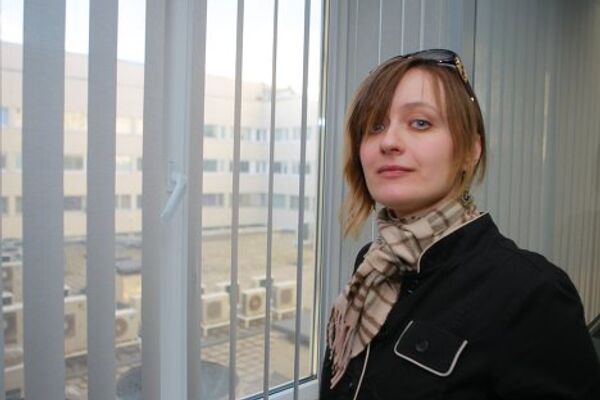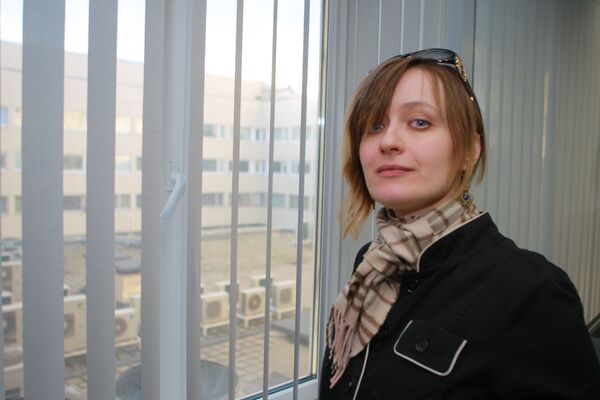It was a headline worthy of instant fame on Reddit or Buzzfeed: “Man shoots another man following argument over philosopher Immanuel Kant.”
At first, it did seem to be someone’s idea of a clever joke. But as the hours ticked away on Monday morning and more details emerged, the picture the headline painted became all too real.
The incident, according to RIA Novosti, happened in the Russian town of Rostov-on-Don. During celebrations commemorating City Day this past Saturday, a man in his 20s was standing in line at a kiosk (other accounts list it as a kiosk selling beer), when he began discussing the works of philosopher Immanuel Kant with another man in his 20s. At some point, the conversation became heated.
Eventually, the budding philosophers ran out of verbal arguments and started hitting each other.

Shortly thereafter, one of them decided to settle the matter in a decisive manner: He whipped out a traumatic pistol and shot his opponent in the head.
The victim, whose injuries are said to be severe but not life-threatening, is recovering in a local hospital.
The perpetrator tried to flee, but was apprehended by police, and is now facing prison time.
In order to truly understand what just happened, one must first understand the reputation that Rostov-on-Don has in criminal circles. Even in the more or less orderly decades of Soviet rule, Rostov-on-Don was known as a town full of career gangsters. Rostov-on-Don was and is colloquially known as “Rostov-papa” – beloved by hardened mobsters of yore (in a similar but gentler fashion, the now-Ukrainian port town of Odessa became known as “Odessa-mama” many years ago).
Even before the USSR came to exist, both Rostov-on-Don and Odessa were popular with escaped prisoners and such. Both were cities easy to get lost in and easy to get any kind of random gig in (both of the legal and not-so-legal variety), with lots of people passing through and the kind of casual, semi-official climate that appealed to people in conflict with the law. As a famous chanson lyric goes – Russian chanson being a music genre borne of the criminal underworld: “Ah, Odessa, Odessa mother, Rostov-papa sends hellos! There are so many [criminal] jobs to do here, and nobody gets any rest!”
In the decaying years of the Soviet Union, otherwise known as the 1980s, fearsome serial killer Andrei Chikatilo, an incarnation of pure evil if there ever was one, was based in Rostov-on-Don.
Even now, Rostov-on-Don is commonly referred to as “hardcore” by both visitors and locals. Its milder climate – mild especially compared with a city like Moscow – makes its former residents absolutely nostalgic, but its criminal scene is treated as something else entirely. “Rostov-on-Don is a place you go to for the weather,” a friend of mine, a native of the town and current resident of Moscow, remarked to me recently. “And then you escape it all over again, because of the bad guys.”
When I first heard of the Kant-related shooting, I contacted another friend, who currently lives in Rostov-on-Don, so that she could comment on the news.
“What’s so special about it?” she deadpanned. “In Rostov-on-Don, young men will use any excuse to pounce on each other. It’s how they display their dominance. If they can do it over some random chick or if they don’t like each other’s haircuts, why not do it over Kant?”
It wasn’t something I could argue with. For the world at large, a dude whipping out a weapon over philosophy may be a crime both shocking and hilarious. For natives of Rostov-on-Don, it seems to be yet another example of hyper-masculinity gone too far.
Nobody wants to be thought of as weak on the city streets – not even people who know a thing or two about Kant (and, it must be said, the common assumption that Russian criminals are all semi-literate boneheads is particularly untrue, though it remains to be seen whether or not a career criminal was involved in the Rostov shooting).
If anything, a philosophical argument in particular serves as a good excuse for the demonstration of raw power. In this context, being a nerd is bad enough – being a nerd who can’t shoot is even worse.
Trendwatching in Russia is an extreme sport: if you’re not dodging champagne corks at weddings, you’re busy avoiding getting trampled by spike heels on public transportation. Thankfully, due to an amazing combination of masochism and bravado, I will do it for you while you read all about it from the safety of your living room.
Natalia Antonova is the acting editor-in-chief of The Moscow News. She also works as a playwright – her work has been featured at the Lyubimovka Festival in Moscow and Gogolfest in Kiev, Ukraine. She was born in Ukraine, but spent most of her life in the United States. She graduated from Duke University, where she majored in English and Slavic Literature. Before coming to Moscow, she worked in Dubai, UAE and Amman, Jordan. Her writing has been featured in The Guardian, Foreign Policy, Russia Profile, AlterNet, et al.
Trendwatcher: Moscow’s Aging Voters Defeat Its Apathetic Youth
Trendwatcher: Glamorous Fraudsters and Debt Suicides
Trendwatcher: The Scandalous Truth About Russian Men
Trendwatcher: Of Russian Tourists, Egyptian Violence, and Fate
Trendwatcher: Moscow’s Migrant Problem – And Lack of Community
Trendwatcher: Mizulina, Gay Activists – And Fame
Trendwatcher: Navalny and the Train Station Blues
Trendwatcher: Russia, Self-Defense and Trayvon Martin
Trendwatcher: Expat Women in Moscow: When Dating is No Disaster


